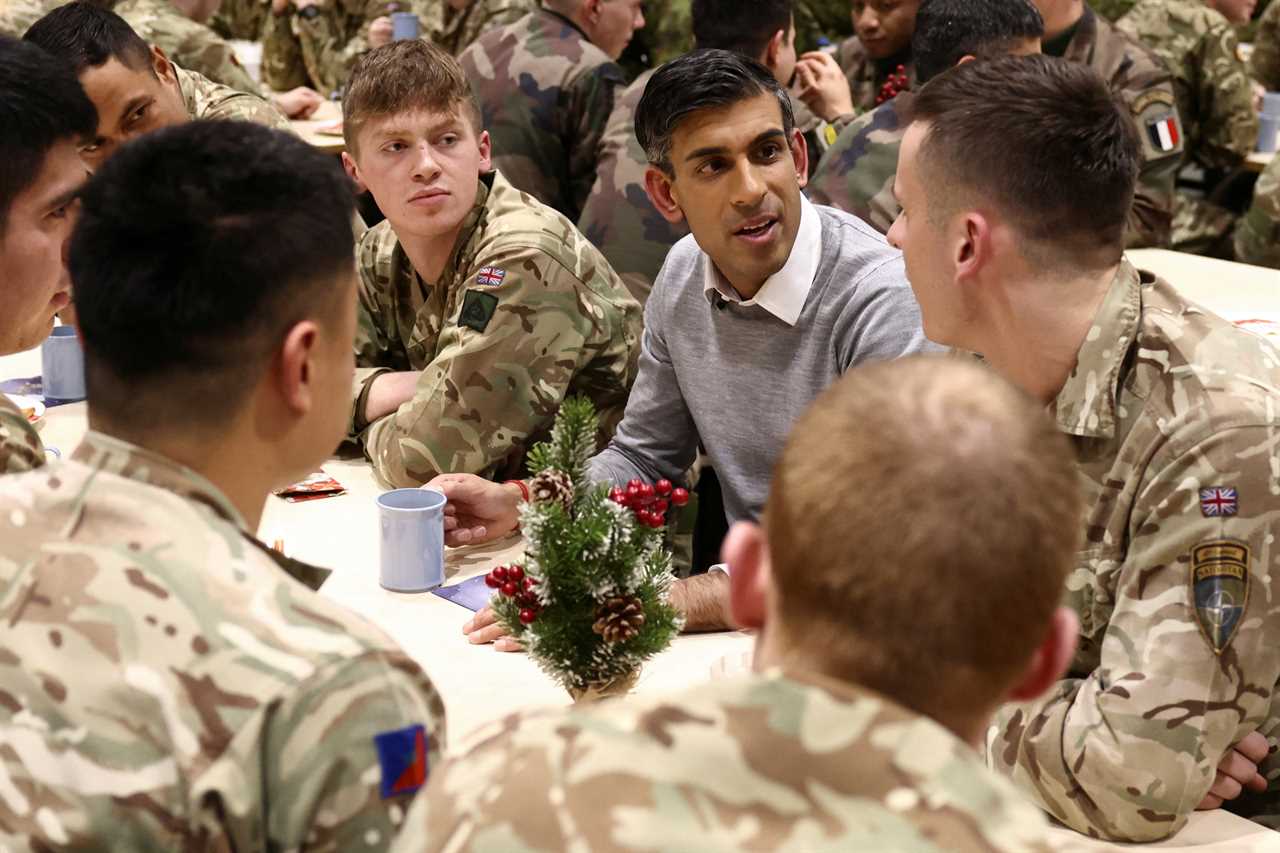NINE in ten parents in the armed forces have considered quitting because of the huge toll on their kids.
Young people in military families are falling behind at school and struggling to get the grades they need after being shipped around the country from school to school, a report warns today.

PM Rishi Sunak eats Christmas dinner with troops at the Tapa Military base, in Tapa, Estonia, yesterday
There must be better implementation of the Armed Forces Covenant – a legal promise to treat them fairly – across all areas of life to help kids achieve their best while their parents are off serving the country, it found.
But the struggling kids of serving military are more resilient than others at coping with the disruptive impacts of their parents service, the Children’s Commissioner research found.
It comes as at least 750 armed forces personnel are expected to step in to drive ambulances and perform tasks as drivers go on strike today.
Another 625 are set to give up their Christmas holidays with their families to step in when Border Force staff strike later this week.
Families told the Children’s Commissioner that they felt pride in belonging to a service family and understood the need for personal sacrifice.
But 89 per cent of personnel reported they ‘often consider’, ‘sometimes consider’ or ‘have decided’ to leave the army due to the difficult impact on their children.
Kids need help to get extra tutoring and catch-up classes, should not fall to the bottom of waiting lists if they move schools, and should not lose their special needs provisions if they are transferred to a new area, Dame Rachel de Souza says today.
Just 34 per cent of GCSE kids who had moved secondary school at least twice got strong Maths and English grades.
That compares to 56 per cent of kids who didn’t move school at all.
Dame Rachel de Souza, said: “As we face a difficult winter, with many armed forces personnel called on to support our public services, their dedication is never more appreciated.
“No serving family should have to beg for the support they are entitled to through the Armed Forces Covenant, and I hope this can be implemented more effectively across all public and voluntary services to meet their needs.”






